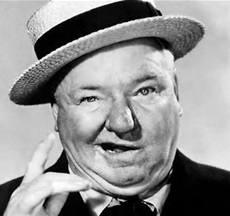 As a career politician, Republican Speaker of the House Paul Ryan knows the value of money, both now and in the future. Now, he has secured both by vowing to oppose the DOL’s pending fiduciary standard rule. And in the process, he will be paid lots of money.
As a career politician, Republican Speaker of the House Paul Ryan knows the value of money, both now and in the future. Now, he has secured both by vowing to oppose the DOL’s pending fiduciary standard rule. And in the process, he will be paid lots of money.
How much money are we talking about?
According to Investment News:
“Of the $4.6 million he has raised for his personal campaign, $419,812 has come from the securities and investment sector and $212,725 from the insurance industry, according to the Center for Responsive Politics. The financial industry is the largest contributor to his $1.6 million leadership political action committee, and insurance is the third largest.”
In adhering to this standard, financial advisors would have to make financial recommendations that are in the best interests of their clients. While that may sound like the normal thing to do to the average investor, it is not the standard industry practice, at least based on the decade-long fight the financial services industry has waged against this seemingly straight forward rule.
In the future, by vowing to fight the DOL’s rule, Ryan now has a guaranteed job to several very lucrative post-Congressional job offers: He can become a consultant like fellow Congressmen Billy Tauzin (R-La.) who went on to head the pharmaceutical trade lobbying group; Eric Cantor (R-Va.), who landed a $3.4 million job for an investment bank even though he has no banking experience; or Joe Lieberman (I-Conn.), who became a lobbyist after promising he would never do so.
Challenging the Old Business Model
The current Republican cover for opposing the fiduciary standard is that it is what the financial services industry calls a “regulatory burden.” Of course, to the average investor, the “burden” would be that the financial advisor would have to explain why they are choosing one investment over another or else they would have to explain how a certain investment works. This might seem normal to most people in the white collar advice industry, but to the financial industry, this is a “burden.”
But clearing away the smoke from the financial services and insurance industries and the Republicans, explaining conflicts-of-interest is a bad business practice.
First, it is so common that most average investors don’t even know they exist. The DOL’s rule, advanced under the guidance and perseverance of Phyllis Borzi, assistant secretary of the DOL,

would point out any conflicts-of-interest and then put the advisor on notice that he has to explain the conflicts or why another investment would be a better fit for an individual client. If this was done industry wide, it would fundamentally change the way investment products and insurance is sold since hiding the facts and recommending one commodity-like product over another will now require some explaining, especially when commissions or any under-the-table incentives are involved.
Of course, the principle upon which the financial services and insurance industries sell products is based on unequal power and unequal information, complicated by a highly-paid or highly-commissioned pay structure. Opening this business model to more transparency, as the fiduciary rule would ultimately do, would require a whole new business model, including one in which t some highly-paid rep and management would be forced to suffer a pay cut. This is why the industry has paid scores of millions in lobbying fees over the past decade to derail the DOL rule.
Or in the words of WC Fields, the comedian who very well could have been a financial advisor, “Never give a sucker an even break.” The fiduciary rule would try to reverse that.











